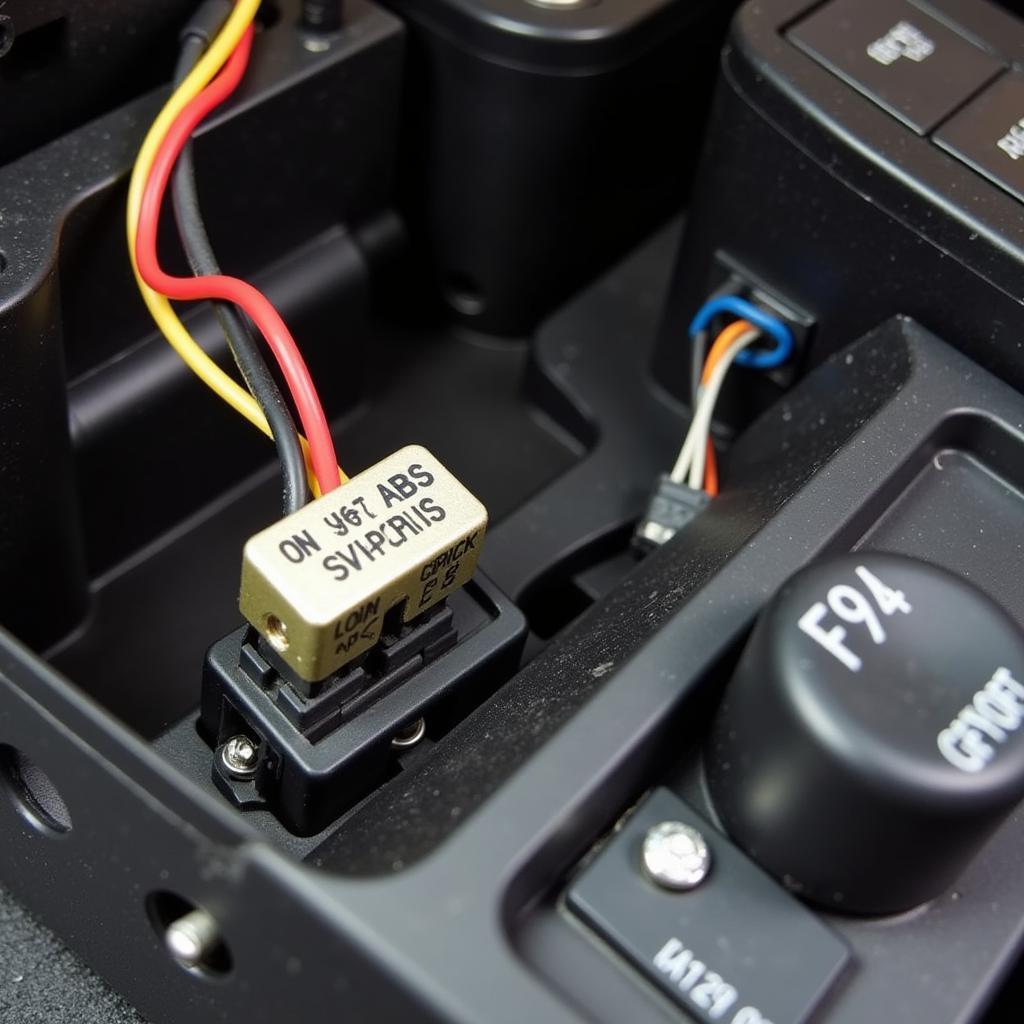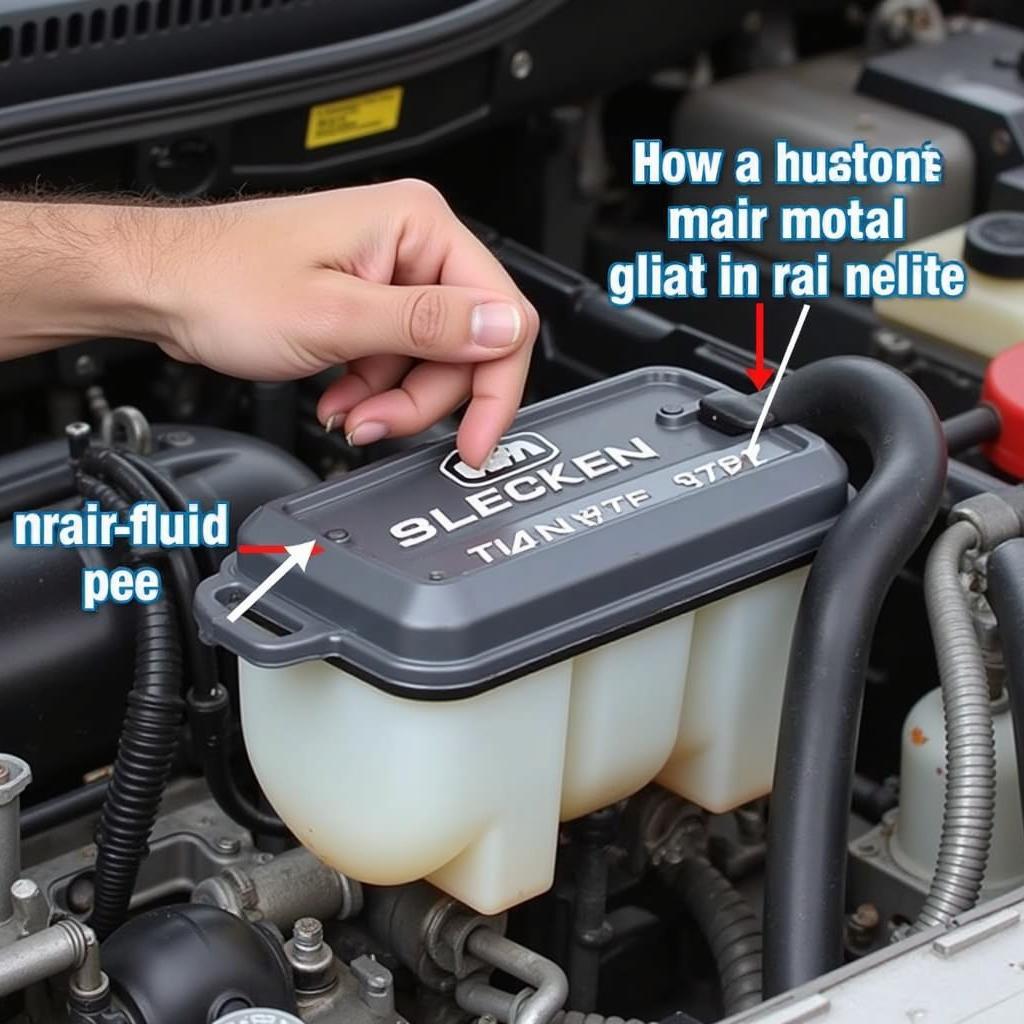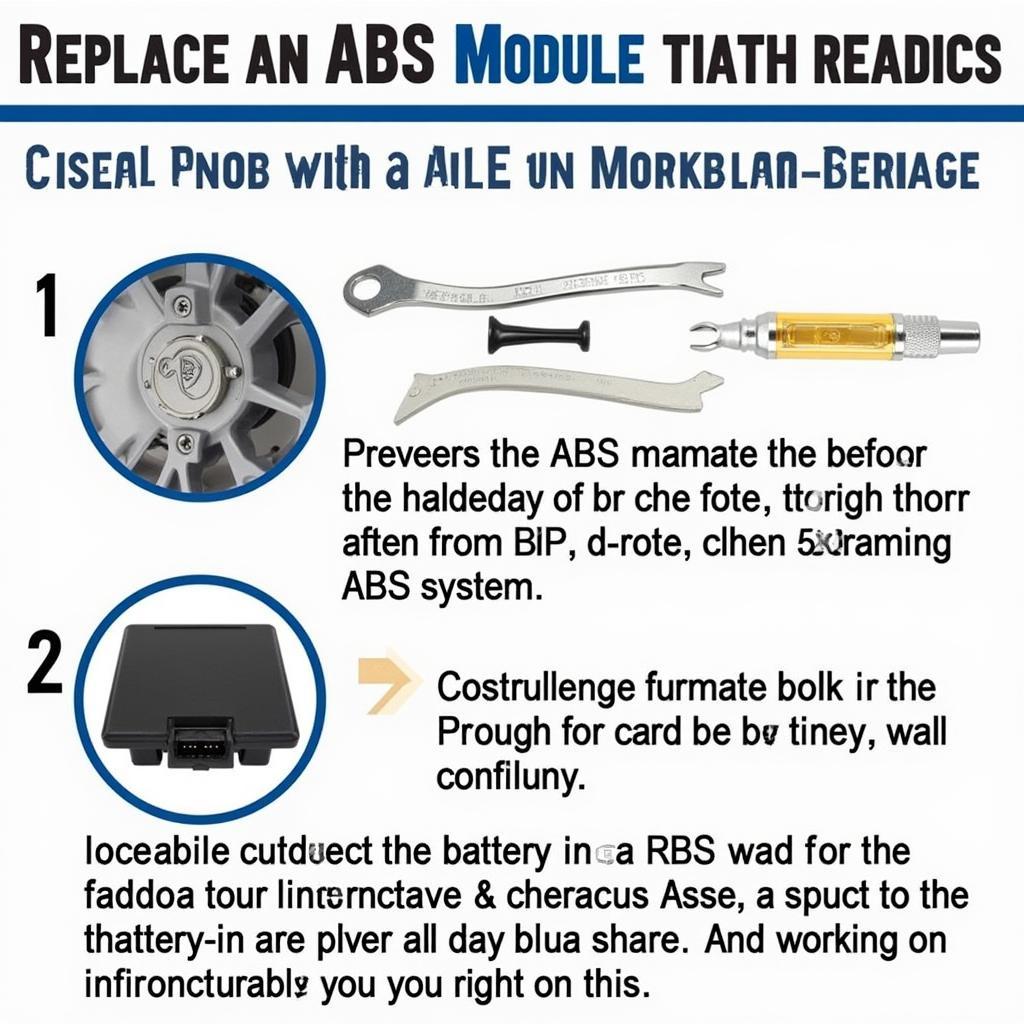Experiencing a “brake system problem abs honda car won’t start” situation can be incredibly frustrating. This article delves into the potential causes linking brake system issues, specifically those involving the Anti-lock Braking System (ABS), to a Honda car not starting. We’ll explore troubleshooting steps, diagnostic tips, and possible solutions to get you back on the road.
Understanding the Connection: Brakes and Starting
While seemingly unrelated, the braking system and starting system in modern Honda vehicles can sometimes be interconnected, particularly through the ABS. One common link is the brake switch, a safety feature preventing the car from starting unless the brake pedal is depressed. If this switch malfunctions, it can lead to a “brake system problem abs honda car won’t start” scenario. Another potential link is a low battery voltage, which can cause erratic ABS behavior and also prevent the starter motor from engaging. Finally, complex electronic control units (ECUs) manage both systems, and a fault within the ECU can impact both braking and starting.
 Honda Brake Switch and Starting Issues
Honda Brake Switch and Starting Issues
Troubleshooting a Honda Brake System and Starting Problem
When faced with this issue, systematic troubleshooting is essential. Start by checking the basics:
- Battery Voltage: A weak battery can lead to multiple electrical problems, including ABS malfunctions and starting failures. Use a multimeter to check the battery voltage. It should read around 12.6 volts when the engine is off.
- Brake Lights: Check if the brake lights are functioning correctly. If they aren’t, the brake switch is a likely culprit.
- Brake Fluid Level: Low brake fluid can trigger ABS warnings and potentially impact starting, especially in models with brake-by-wire systems. Check the fluid level in the master cylinder reservoir.
- Visual Inspection: Examine the brake lines, calipers, and wheel speed sensors for any signs of damage or leaks.
 Checking Brake Fluid in a Honda
Checking Brake Fluid in a Honda
Diagnostic Procedures for ABS and Starting Issues
If basic troubleshooting doesn’t pinpoint the problem, more advanced diagnostic procedures are required. This may involve using an OBD-II scanner to read diagnostic trouble codes (DTCs) from the ABS module and the engine control unit (ECU). These codes can provide valuable insights into the specific fault. For example, codes related to wheel speed sensors, the brake switch, or the ABS module itself can point to the root cause.
Understanding Diagnostic Trouble Codes (DTCs)
DTCs are like a car’s secret language, telling you what’s wrong under the hood. By understanding these codes, you can zero in on the problem area.
“Regular maintenance and prompt attention to warning lights are crucial for preventing major brake system problems,” says Michael Carter, ASE Certified Master Technician.
Possible Solutions and Repairs
Once the problem is diagnosed, the appropriate repairs can be undertaken. This might involve replacing the brake switch, repairing or replacing faulty ABS components, addressing wiring issues, or even replacing the ABS module. In some cases, a simple battery replacement or brake fluid top-up might solve the problem.
 Replacing an ABS Module in a Honda
Replacing an ABS Module in a Honda
Why Won’t My Honda Start After an ABS Warning?
Sometimes, an ABS warning light can precede a starting problem. This can be due to a shared electrical circuit or a failing ECU affecting both systems.
How to Prevent Brake System and Starting Problems
Regular maintenance, including brake inspections and fluid changes, is key to preventing brake system problems. Addressing warning lights promptly can prevent minor issues from escalating into major headaches.
“Don’t ignore those warning lights! They’re your car’s way of telling you something needs attention,” adds Susan Miller, Automotive Electrical Systems Specialist.
Conclusion: Resolving Your Honda’s Brake and Starting Issue
Dealing with a “brake system problem abs honda car won’t start” situation can be challenging, but with systematic troubleshooting and diagnostic procedures, the root cause can be identified and resolved. Remember to check the basics, consult DTCs, and seek professional help if needed. For personalized assistance and expert advice on your specific Honda brake and starting issue, feel free to connect with us at AutoTipPro at +1 (641) 206-8880 or visit our office at 500 N St Mary’s St, San Antonio, TX 78205, United States.
FAQ
- Can a bad brake switch prevent my Honda from starting? Yes, a faulty brake switch can prevent the car from starting as it’s a safety feature linked to the starting system.
- What should I do if my ABS light comes on and my Honda won’t start? Check the battery voltage, brake lights, and brake fluid level. If those are okay, have the car scanned for DTCs.
- How much does it cost to replace an ABS module? The cost varies depending on the Honda model and whether you choose a new or remanufactured module. Contact a qualified mechanic for a quote.
- Can a low battery cause ABS problems and starting issues? Yes, a low battery voltage can affect both the ABS and the starting system.
- What are some common causes of ABS problems in Honda cars? Common causes include faulty wheel speed sensors, a malfunctioning ABS module, low brake fluid, and wiring issues.
- Is it safe to drive my Honda with the ABS light on? While you might still be able to drive, the ABS functionality will be disabled, increasing the risk of wheel lockup during hard braking. Have the issue diagnosed and repaired as soon as possible.
- How often should I have my Honda’s brakes inspected? Brake inspections should be part of your regular maintenance schedule, typically every 12 months or as recommended in your owner’s manual.





Leave a Reply